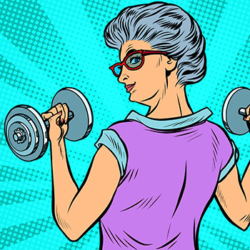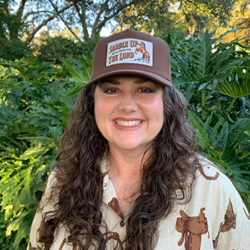 Have a problem? Just ask a 13-year-old to write an app for that. Some start younger than 13, like Michael Sayman who learned to code at age 12 and at 17 is interning at Facebook.
Have a problem? Just ask a 13-year-old to write an app for that. Some start younger than 13, like Michael Sayman who learned to code at age 12 and at 17 is interning at Facebook.
The funniest app I have heard about was written by a 13-year-old named Ethan Duggan. He was the creator of LazyHusband after constantly having to answer his mom’s questions about how her outfits look. Don’t get any ideas because the app has since been retired. He has however, gone on to expand the Lazy series with LazyWife and LazyKid along with two additional apps.
Sixteen-year-old Julian Wyzykiwski, like any other teenager, liked video games and began to develop them himself. He now runs his own company called Combustible Games.
 Since the pandemic began, more and more people are creating apps as well as other businesses to get us through these times. Most of these businesses start at home.
Since the pandemic began, more and more people are creating apps as well as other businesses to get us through these times. Most of these businesses start at home.
Home-Based Businesses & Insurance Plans
More and more people are starting home-based businesses due to the growing cost of child-care services, need for flexibility, and the need for another income. Millennials grew up watching Zuckerberg and others start businesses, so it is no surprise that most surveys and research on the topic show that Millennials have the entrepreneurship mindset.
 This is where someone like me comes in. Just because you run a business or start a business from your home, doesn’t mean that benefits such as health insurance, disability insurance, and retirement planning are out of your reach.
This is where someone like me comes in. Just because you run a business or start a business from your home, doesn’t mean that benefits such as health insurance, disability insurance, and retirement planning are out of your reach.
A one-person company can have health insurance as easily as a major corporation. The owner must show proof of owning the business and many owners are misinformed when they think their rates would be higher than larger companies.
Therefore, talk to someone who has the facts about Health Savings Accounts and the possible tax advantages for having such a plan. I have friends and many clients who are well aware of the challenges facing home-based businesses. I work with small companies and large companies alike daily and many times send them to insurance professionals who offer them different health policies.
Unlike traditional health insurance, some of those plans pay you in most cases, not the doctor or hospital. You control the cash benefits and spend them as you like in order to meet any financial challenge, accident, or illness that could negatively affect your standard of living.
At Allen & Company, we aren’t experts on those types of plans, but we know people who are. What we focus on is retirement plans.
Retirement Planning for Small Businesses
We all know planning on Social Security is a bad idea, so let’s talk about some options for home-based business professionals. Based on need, we usually establish one of three types of plans for a small business: a SEP-IRA, a SIMPLE IRA, or an Individual 401k.
There are several factors that help us decide which type of plan is right for you. Often, we start with the following:
- Are there employees other than yourself? Is your spouse employed in the business? Are there business partners and are the spouses of the partners employed with the business?
- Do you and your employees want to contribute through payroll deduction?
- Are you willing to contribute on behalf of your employees or make a match?
- Which is more important to you: Higher contribution limits and plan design flexibility or lower plan costs and easier administration?
With too many small-business owners falling short at retirement, don’t delay in talking to a financial planner.
January 2021
Content in this material is for general information only and not intended to provide specific advice or recommendations for any individual.




